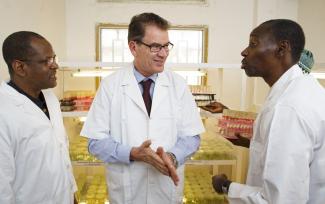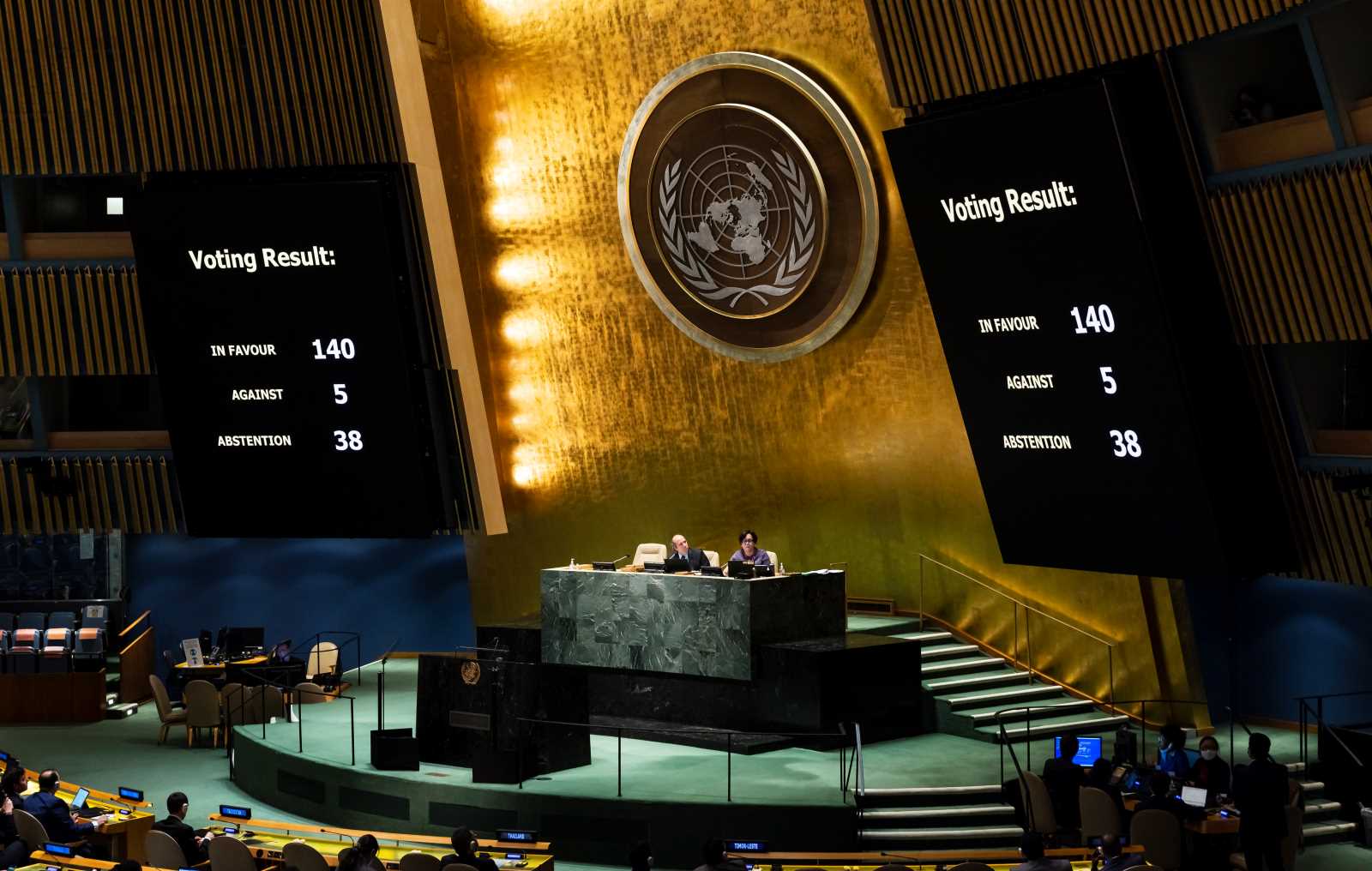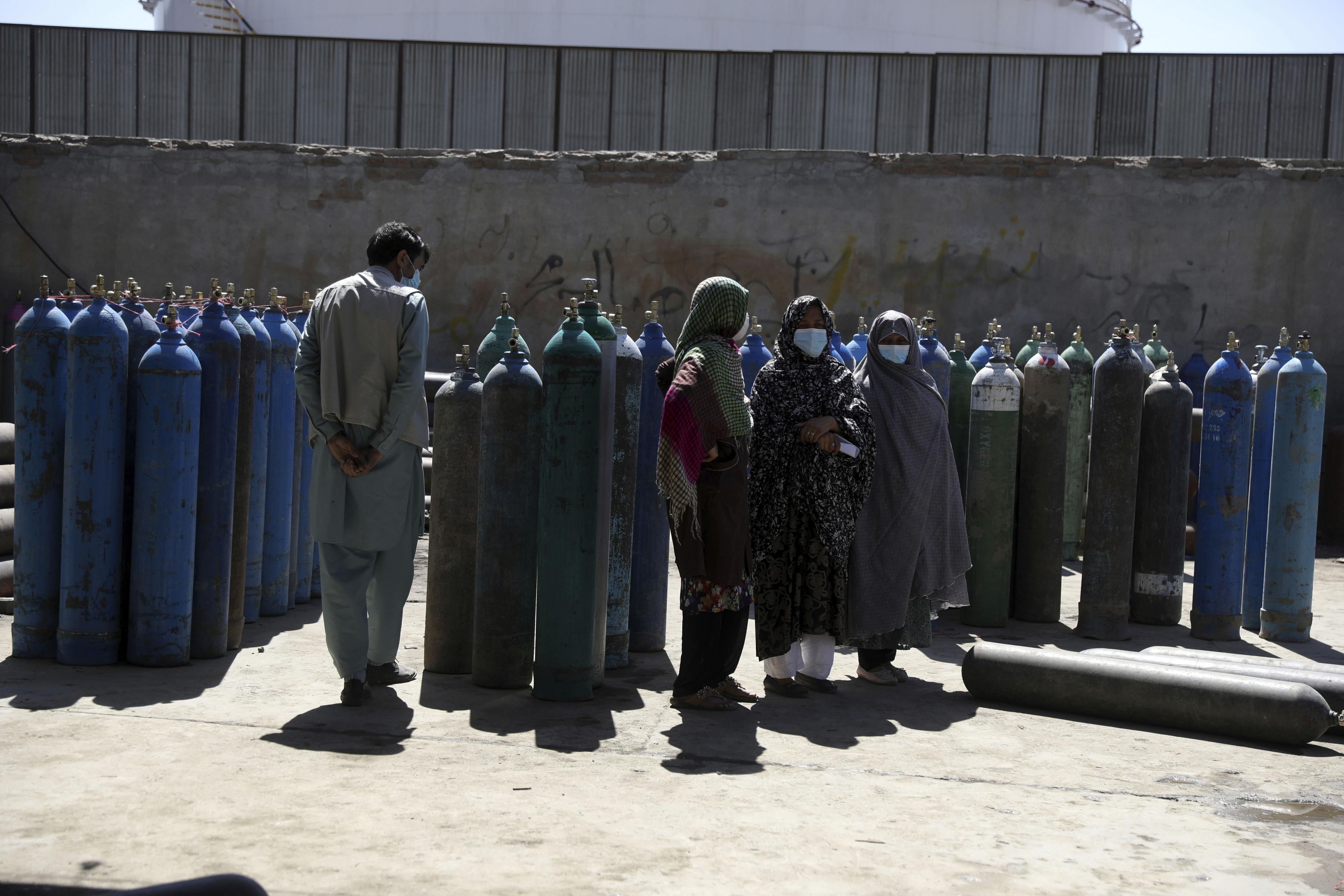Agriculture
Promoting structural change

Our experience at the launch of our first Green Centre in Mali in March instilled the entire delegation with a feeling of optimism. This agricultural research institute in Katibougou is already well on the way to becoming a centre for innovation for the production and marketing of agricultural goods. This new Green Centre will help to promote the transfer of knowledge and the creation of a modern value chain: from growing crops to storing the harvest, to processing it and marketing the products to consumers. Our plan is to link Mali's existing educational and research facilities with one another and spread the knowledge generated by them throughout the country.
We will obviously make use of this knowledge in ongoing development programmes and projects in Mali. Innovative approaches to irrigation, for example, have great potential to increase the yields of smallholder farms sustainably, thus fostering growth across the region's entire value chain from the farm to the table. By exploring ways to improve irrigation, we are making a significant contribution to reducing poverty, hunger and malnutrition in Mali.
Ten Green Centres
My goal is to establish at least ten Green Centres in the next few years, primarily in Africa. They will play an important role in modernising agriculture, boosting agricultural production in socially and environmentally friendly ways, promoting dynamic rural economies and providing people in rural and urban areas with adequate supplies of healthy food. The plans for these innovation centres are a key part of my special initiative "One World – No Hunger", which will direct the focus of Germany's development policy more towards rural development, agriculture and food security than was previously the case.
In the past, it was hoped that global hunger would be eradicated simply by opening borders and promoting international trade. This hope has not been fulfilled. Trusting in the illusion that world market prices for agricultural products would stay low for ever, many developing countries neglected their agricultural sectors for decades, relying instead on cheap imported food. Development policymakers in donor countries neglected agriculture as well.
During this period, a number of developing countries went from being net exporters of agricultural products to net importers. They only realised their mistake when world market prices began to rise dramatically.
Today, many parts of the world are not producing enough food, despite their enormous agricultural potential. As Germany’s Federal Minister for Economic Cooperation and Development, it is my job to help countries tap this potential. Developing a domestic agri-food industry offers them the chance to overcome poverty and hunger.
According to the World Bank, investments in agriculture do more to reduce poverty than investments in other sectors. Agriculture can be an important starting point for far-reaching development processes. Higher yields per hectare, however, are not enough to bring about lasting change. Increases in productivity must be sustainable. Agriculture must conserve soil fertility, natural water resources and biodiversity. Otherwise, future generations will not be able to feed themselves. Modern farming methods can help to lessen the impacts of climate change. And anyway, we must expand our focus beyond production in order to build complete value chains, which means developing all aspects: production, harvest, storage, processing, transport and marketing. Only by taking a holistic approach will we ensure that nature's gifts actually reach consumers as food.
Innovation as the most important driving force
In order to establish a domestic agri-food industry in developing countries that is able to seize these opportunities, we must promote innovation. Innovation has become the driving force in agriculture.
In the decades following World War II, production increases were still primarily achieved by using more land, more water and more fertiliser. Today, the situation is completely different. Simply adding more and more inputs is no longer enough to achieve meaningful success. Instead, progress is now made by using inputs intelligently, efficiently and effectively. Productivity is improving in those places
- where plant-breeding research is being carried out,
- where the results of that research are being tested in the field, and
- where the results are then widely disseminated via training courses.
Innovation is more than just technical advancement. Sharing business and organisational expertise is just as important as communicating technical knowledge and spreading insights from agricultural science. Building up associations of producers and distributors, and linking them to markets are equally essential. Last but not least, farmers need to organise in order to gain a political voice.
Technical, organisational and institutional innovations combined can launch an entirely new kind of "Green Revolution". These innovations will help us to move on from the principle of "producing more" to the sustainability paradigm of "producing more with less". Advancement in agriculture, furthermore, must no longer be isolated and limited to only one part of the agricultural value chain. This concerted effort enables comprehensive change throughout the entire value chain.
Making progress through innovation used to be more common in industrialised countries than in the developing world. But today it is obvious that sharing and applying modern expertise and technology has become the most important force for change in developing countries, and a defining feature of their agricultural and food industries. Development policymakers must further this trend through active, consistent support. Our Green Centres will play an important role in this regard.
Bringing about structural change
The planned innovation centres for increasing agricultural value creation will concern themselves with research, testing, demonstrations, education, training and extension services. Ideally, the centres will form a broad cluster of institutions for generating and transferring knowledge. There will be a research facility, various demonstration and pilot operations, an agricultural school, training programmes at various locations and extension services with a broad reach. The centres will make important contributions towards boosting yields, protecting harvests, linking farms to markets, increasing local value creation and making sustainable use of natural resources.
The Green Centres will not necessarily be high-tech. The point is that they will focus on providing practical knowledge and techniques that fit local conditions. They will help to turn farming into a modern profession.
In order to achieve their goals, the Centres will have to deliver effective agricultural extension services. They must fill the gaps resulting from the rigorous dismantling of extension services in many countries in the past few decades. The centres' educational and extension services will take into account the often-ignored fact that women make an enormous contribution to agriculture in developing countries. It is women who are chiefly responsible for securing food for their families and local communities.
The planned centres will not be isolated development projects. Instead, they will be the core of an expanded, revised approach to furthering rural development through development cooperation. On the one hand, we hope to improve business opportunities for smallholder farms. We will therefore promote
- the creation of producers' associations,
- the development of machinery pools,
- better access to agricultural financing and modern information and communications technology (such as smartphone-based market information – see E+Z/D+C 2014/02 p. 67ff).
On the other hand, we want to improve the business environments that small-scale farms operate in, for instance by
- advising governments on agricultural policy and trade,
- supporting institution building, and
- promoting the development of rural infrastructure and regional resource management.
The long-term success and development impact of the Green Centres will depend on the political will and ownership of our partner governments. Using our experience in Mali as a model, we will gradually approach other countries and suggest how innovation can be harnessed to further the development of rural regions.
If countries are interested, we will work with them to design and build innovation centres. Wherever possible, we will build on a country's existing research, educational and extension facilities. We will also incorporate the centres into the country's ongoing national development programmes and German development projects. Finally, we will invite other German and international actors to help us use innovation and knowledge management to strengthen the agri-food industry in developing countries.
Gerd Müller is Germany’s Federal Minister for Economic Cooperation and Development. www.bmz.de










